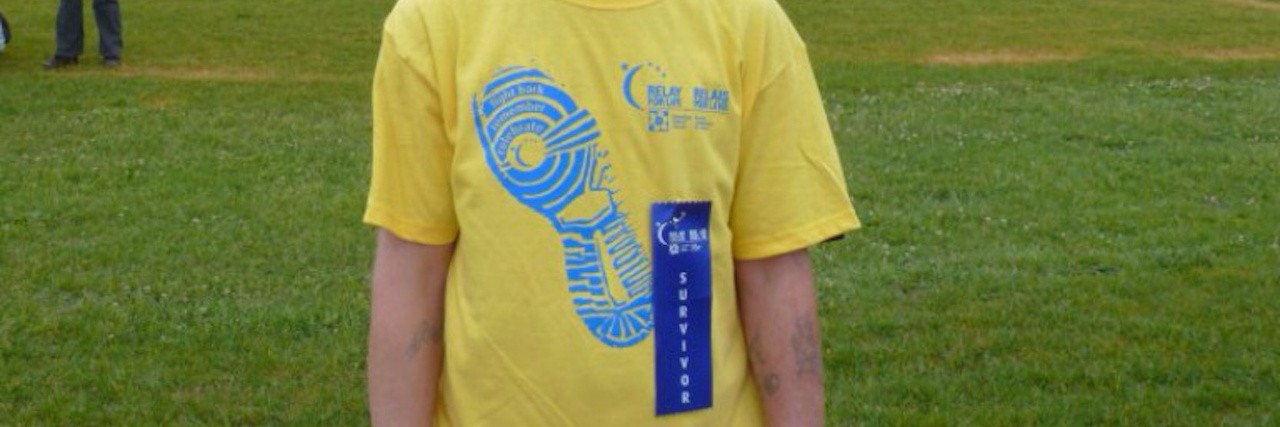My story is about a fight. Recently I learned I was in for the fight of my life. In my corner I already had my beautiful wife, Tammy, my family and a few close friends.
Once Pete Brown, who trains at Adrenaline Training Center, heard about my fight, he offered to train with me at the gym. Adrenaline is primarily a mixed martial arts gym, but also trains in all aspects of fitness and conditioning. I accepted his offer, knowing I could use all the help available. With the love and support of my wife, friends, family and the new friendships I made at Adrenaline, I felt stronger.
On July 19, 2011 the official announcement was made: I would compete in a five-round title fight. My opponent for this epic bout: stage 3 testicular cancer.
In between my treatments (when I was able to), Pete would meet me at the gym to train. Some days I would get tired fairly easily due to the chemo, and our workouts would not be as long as other days. He always offered a positive attitude and support; he didn’t care if I was training for five minutes or an hour.

I honestly believe that, other than the love and support of my wife, who fought this fight with me, the team at Adrenaline was in my corner, helping me get through it. What I gained at Adrenaline may not have cured my cancer, but it made the fight a little easier. I want to thank Tammy, Pete Brown and the other members of the Adrenaline team for helping me get through it and making my story a success.
March 23, 2016 was my fourth year in remission.
My advice to anyone who is diagnosed is to stay positive, even when it seems impossible. Tell anyone who wants to be around to keep the negativity, sadness, etc. away because in my experience, it doesn’t help. The diagnosis and treatment are bad enough to worry about.

Don’t be afraid to ask questions from doctors, other patients and nurses (especially nurses — they know way more than they often get credit for). Keep a notepad when asking questions or bring someone you trust who can help remember any questions to ask or answers that are provided.
I’ve learned a lot since my diagnosis that could’ve helped me as well, such as support groups that are available through the hospital or privately funded, social media pages that offer support and stories and experiences from other people.
My advice for anyone in remission would be the same as above, with the addition of helping others who may need it — through social media, volunteering, etc. Our experiences may help someone else deal with their diagnosis or remission a little easier.
The Mighty, in partnership with Fuck Cancer, is asking the following: What do you wish you had found on Google when you were first diagnosed? Find out how to email us a story submission here.

